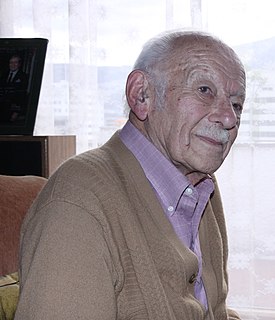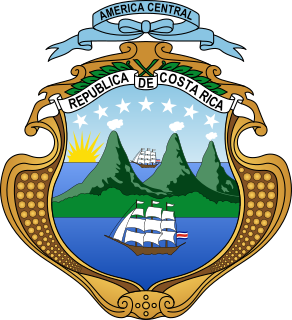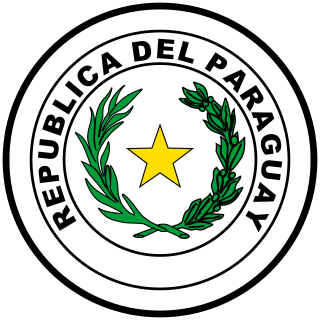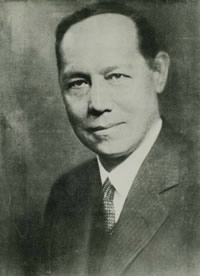
General elections were held in Guatemala on 9 November 2003, with a second round of the presidential election held on 28 December. Óscar Berger won the presidential election, representing the Grand National Alliance, a coalition of alliance of the Patriotic Party, the Reform Movement and the National Solidarity Party. The Alliance were also victorious in the Congressional elections, winning 47 of the 158 seats. Voter turnout was 57.9% in the Congressional elections, 58.9% in the first round of the presidential elections and 46.8% in the second.

Presidential elections were held in Chile on 22 October 1925. They were the first direct elections in the country's history and the first to be held under the new 1925 constitution. The result was a victory for Emiliano Figueroa, who received 71% of the vote.

General elections were held in Venezuela on 4 December 1988. The presidential elections were won by Carlos Andrés Pérez of Democratic Action, who received 52.9% of the vote, whilst his party won the most seats in the Chamber of Deputies and Senate. Voter turnout was 81.9% in the presidential election and 81.7% in the Congressional elections.

General elections were held in El Salvador on 20 March 1994, with a second round of the presidential elections taking place on 24 April. Armando Calderón Sol of the Nationalist Republican Alliance won the presidential elections, whilst his party also won the legislative elections. Voter turnout was 50% in the first round of the presidential elections and 45.5% in the second, whilst it was 53.1% for the legislative election.

Presidential elections were held in Colombia on 31 May 1998, with a second round on 21 June. Although Horacio Serpa of the Liberal Party received the most votes in the first round, the result was a victory for Andrés Pastrana Arango of the Great Alliance for Change, who received 51.9% of the vote in the run-off.

General elections were held in Venezuela on 1 December 1963. The presidential elections were won by Raúl Leoni of Democratic Action, who received 32.8% of the vote, whilst his party won 66 of the 179 seats in the Chamber of Deputies and 22 of the 47 seats in the Senate. Voter turnout was 92.3% in the presidential election and 90.8% in the Congressional elections.

General elections were held in Ecuador on 17 May 1992, with a second round of the presidential elections on 5 July. The presidential elections resulted in a victory for Sixto Durán Ballén of the Republican Union Party–Conservative Party alliance, who received 57.3% of the vote in the run-off. The Social Christian Party emerged as the largest party in the House of Representatives, winning 21 of the 77 seats.

Presidential elections were held in Brazil on 1 March 1906. The result was a victory for Afonso Pena of the Mineiro Republican Party, who received 97.9% of the vote.

General elections were held in Guatemala on 12 November 1995, with a second round of the presidential elections held on 7 January 1996. Álvaro Arzú of the National Advancement Party won the presidential election, whilst his party also won the Congressional elections. Voter turnout was 46.8% on 12 November and 36.9% on 7 January.

General elections were held in Mexico on 7 July 1946. The presidential elections were won by Miguel Alemán Valdés, who received 77.9% of the vote. In the Chamber of Deputies election, the Institutional Revolutionary Party won 141 of the 147 seats.

General elections were held in Venezuela on Sunday 9 December 1973. The presidential elections were won by Carlos Andrés Pérez of Democratic Action, who received 48.7% of the vote, whilst his party won a majority of seats in the Chamber of Deputies and Senate. Voter turnout was 96.5%.

General elections were held in Costa Rica on 9 February 1936. León Cortés Castro of the Independent National Republican Party won the presidential election, whilst the party also won the parliamentary election, in which they received 59.4% of the vote. Voter turnout was 68.8% in the presidential election and 68.9% in the parliamentary election.

General elections were held in Paraguay on 9 May 1993. In the country's first honest election, as well as the first with no military candidates since 1928, Juan Carlos Wasmosy of the Colorado Party won the presidential election. The Colorado Party remained the largest party in the Chamber of Deputies and the Senate, albeit with only a plurality. The opposition Authentic Radical Liberal Party and National Encounter Party held a majority of the seats in both chambers, later supplemented by the Colorado Reconciliation Movement which broke away from the Colorado Party. Voter turnout was 69.0% in the presidential election, 67.6% in the Chamber elections and 69.4% in the Senate elections.

General elections were held in Brazil on 3 October 1994. The presidential elections were won by Fernando Henrique Cardoso of the Brazilian Social Democracy Party, who received 54.3% of the vote. Cardoso won the election by a margin of 27.3%, the largest in Brazilian history to date, and the first of his two landslide victories. The Brazilian Democratic Movement Party remained the largest party in the Chamber of Deputies and the Senate.

Elections for the President and National Administration Council were held alongside indirect Senate elections in Uruguay on 28 November 1926. In the Presidential elections, the three factions of the Colorado Party received 48.9% of the vote, whilst the National Party received 48.4%. A similar result was forthcoming in the National Administration Council elections.

Presidential elections were held in Colombia on 10 February 1914. They were the first direct presidential elections since 1860. The result was a victory for José Vicente Concha of the Conservative Party, who received 89.1% of the vote. Vicente took office on 7 August.

Presidential elections were held in Colombia on 10 February 1918. The result was a victory for Marco Fidel Suárez of the Conservative Party, who received 54% of the vote. Fidel took office on 7 August.

Presidential elections were held in Colombia in February 1922. The result was a victory for Pedro Nel Ospina of the Conservative Party, who received 62% of the vote. He took office on 7 August.

Presidential elections were held in Colombia on 14 February 1926. The result was a victory for Miguel Abadía Méndez of the Conservative Party, who received 99.9% of the vote. He took office on 7 August.

Presidential elections were held in Colombia on 4 May 1958. They were the first presidential elections since 1949, following a military coup against President Laureano Gómez in 1953. Following the coup, the two main parties came to an agreement on holding office for alternating periods of four years. The agreement, known as the National Front, was approved in a 1957 referendum.



















